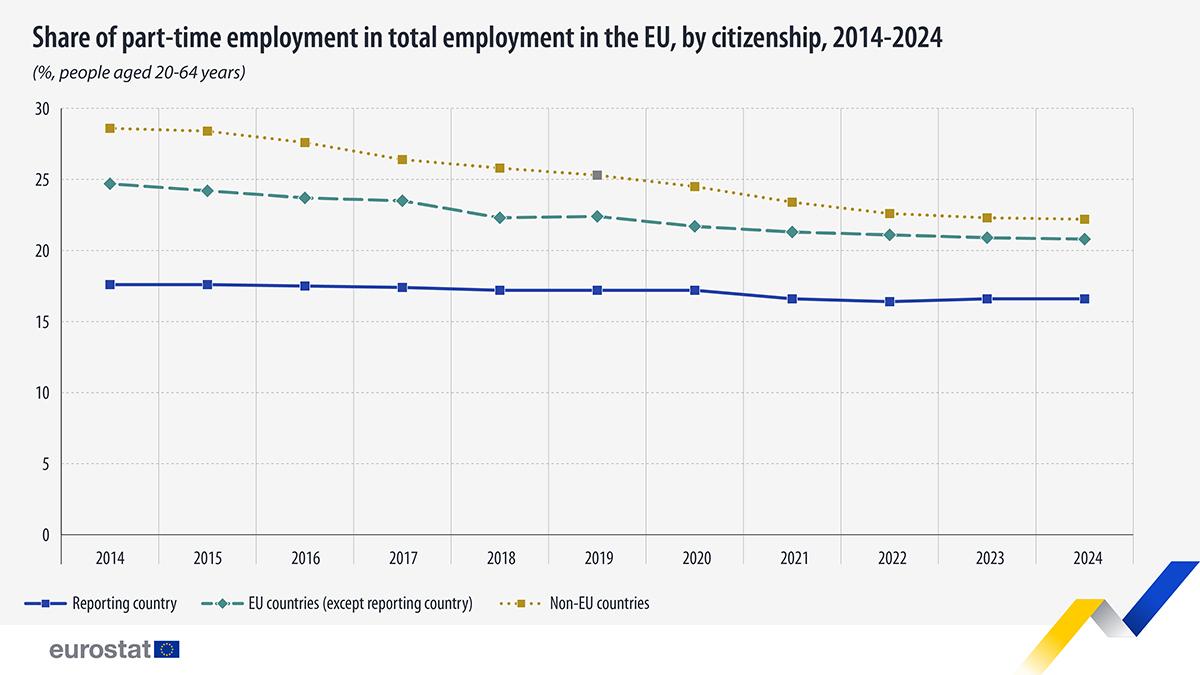2025-07-23
jobs

In 2024, non-EU citizens living in the European Union were more likely to work part-time compared to both EU nationals and EU citizens residing in other member states, according to data published by Eurostat. Non-EU citizens represented 22.2% of part-time workers among the employed population aged 20 to 64. EU citizens living in a different EU country followed closely at 20.8%, while nationals residing in their own country had a lower share of 16.6%. This pattern has remained consistent over the past decade. Between 2014 and 2024, EU nationals recorded the lowest levels of part-time employment. However, all three groups showed a gradual decline in the proportion of part-time employment over this period, particularly among non-EU citizens. Their share has moved closer to that of mobile EU citizens. The data also highlights significant gender disparities. Women were far more likely than men to hold part-time jobs, regardless of their citizenship. Among EU citizens living in another EU country, 35.8% of women worked part-time in 2024, compared with only 7.9% of men. For non-EU women, the figure was slightly higher at 36.8%, while 11.8% of non-EU men worked part-time. Among nationals working in their home country, 27% of women were employed part-time, compared to just 7.4% of men. The figures underscore ongoing challenges related to employment integration and gender inequality in the EU labour market. Source: Eurostat

